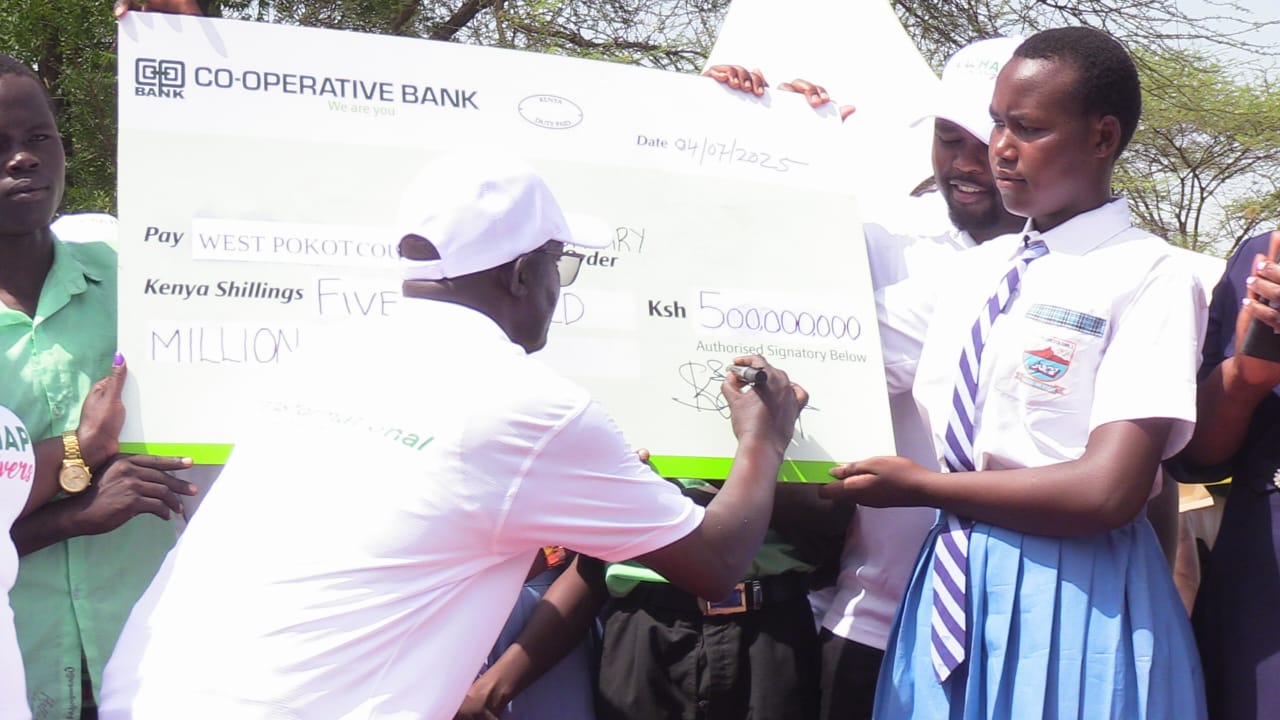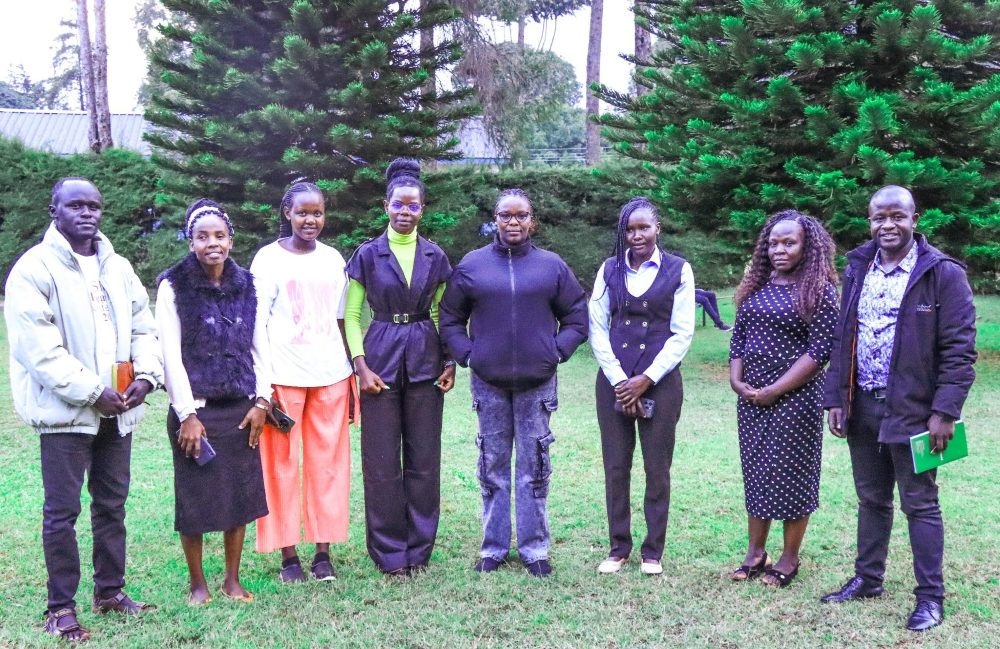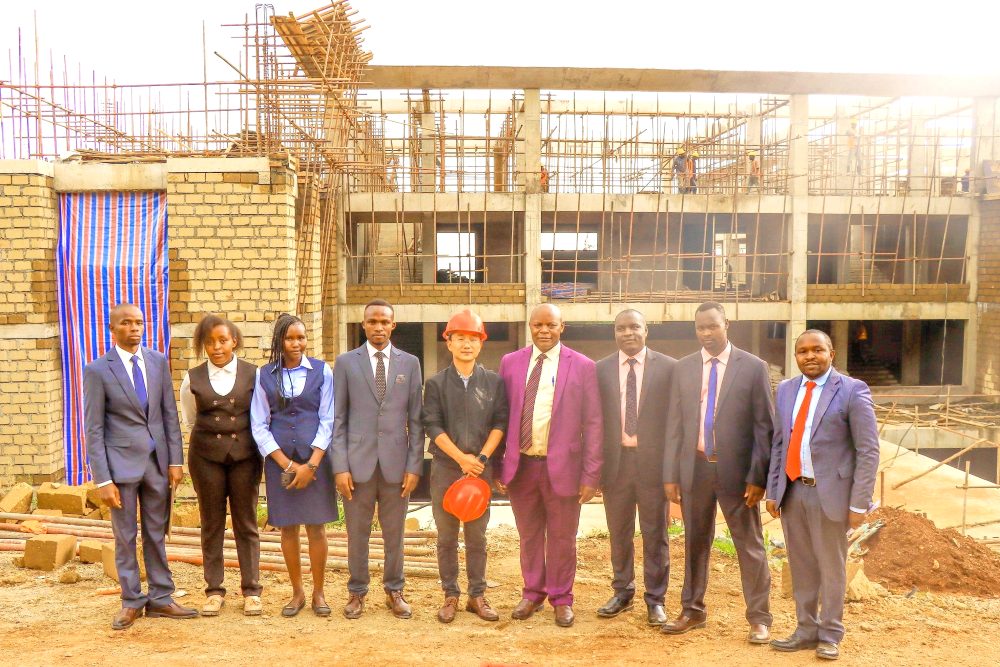For decades, the Pokot community in Kenya’s arid North Rift region bore the scars of poverty, cattle rustling, and relentless banditry. In villages scattered across West Pokot County, the sound of gunfire often silenced the dreams of children whose only wish was to go to school.
Classrooms remained half empty. Many pupils dropped out to herd livestock or flee insecurity. For girls, early marriage was a common path; for boys, joining cattle rustling groups seemed more realistic than becoming doctors or engineers. Education was viewed as a luxury, not a right. The result was a high illiteracy rate and a cycle of poverty that repeated through generations.

But today, a new story is unfolding—one of change, opportunity, and hope. This is a bold initiative by the West Pokot County Government led by Governor Simon Kachapin, the community is witnessing a quiet education revolution.
Governor Kachapin’s administration launched a Ksh 500 million bursary fund at Chesta Girls High School in Sigor Constituency. The fund targets needy learners at all levels—secondary schools, Technical and Vocational Education and Training (TVET) colleges, and universities.
ALSO READ:
Kidscare, Governments roll out Child Protection Policy, focus on Inclusive Education in Kwale
According to the County Executive Committee (CEC) Member for Education, Rebecca Kide, more than 51,000 students have already benefited from the bursary scheme. The program prioritizes the most vulnerable: orphans, children from banditry-prone areas, and families without stable income.
Community elders say education is achieving what years of police operations could not: disarming the youth.
“Before, we used to bury young men every other month. Now, we attend graduation ceremonies,” says Michael Kigia, a 68-year-old elder from Chesegon.

He recalls how banditry and famine forced children to drop out of school. “In Masol, we face hunger and poverty. We need professionals to help our people rise.”
Educated youth, he adds, are now engaging in peace-building and teaching others the power of dialogue over violence.
Governor Simon Kachapin says the bursary program is part of a broader plan to end marginalization and build long-term peace in the region.
ALSO READ:
CS Wandayi pledges to employ youth who pursued Electrical Engineering
“For Pokot to develop, we must invest in the minds of our people,” he said. “We are not just giving out money. We are giving out hope, dignity, and a chance to rewrite our future.”
He emphasized that despite limited resources, his administration will continue prioritizing education as the most effective solution to insecurity and underdevelopment.
Pokot South MP David Pkosing echoed the governor’s sentiments, saying the bursary will uplift the community’s standard of living. Other leaders who backed the initiative include Kacheliba MP Titus Lotee, Tiaty MP William Kamket, and members of the County Assembly.

Back in Kacheliba, Hosea Krop, a 21-year-old university student, reflects on the region’s progress.
“Five years ago, no one believed someone from here could make it to campus,” he says. “But now, many of us are in university. We will return to teach in our villages. We are the change we’ve been waiting for.”
He appealed for continued support and accountability in bursary disbursements, urging the Controller of Budget to ensure pastoralist communities are not left behind.
ALSO READ:
Kakamega High declines rematch with Musingu citing constitutional concerns
“The number of students joining university has risen. Before bursary support, the illiteracy level was high. Now, nearly every homestead has one or two students in college or university,” he said.
Eunice Rengetiang, a local widow, said the program gives new hope to single mothers like her, who now have a chance to educate their children. Easther Chenangat noted that many students had previously dropped out, but the bursary is keeping them in school.
As the sun sets over the rugged Pokot landscape, a new dawn is breaking. With every bursary cheque issued, the chains of poverty and illiteracy are being broken.
West Pokot, once known for insecurity and banditry, is now emerging as a beacon of educational transformation—a powerful reminder that when leaders invest in education, communities rise.
By Martin Ruto
You can also follow our social media pages on Twitter: Education News KE and Facebook: Education News Newspaper for timely updates.
>>> Click here to stay up-to-date with trending regional stories
>>> Click here to read more informed opinions on the country’s education landscape






